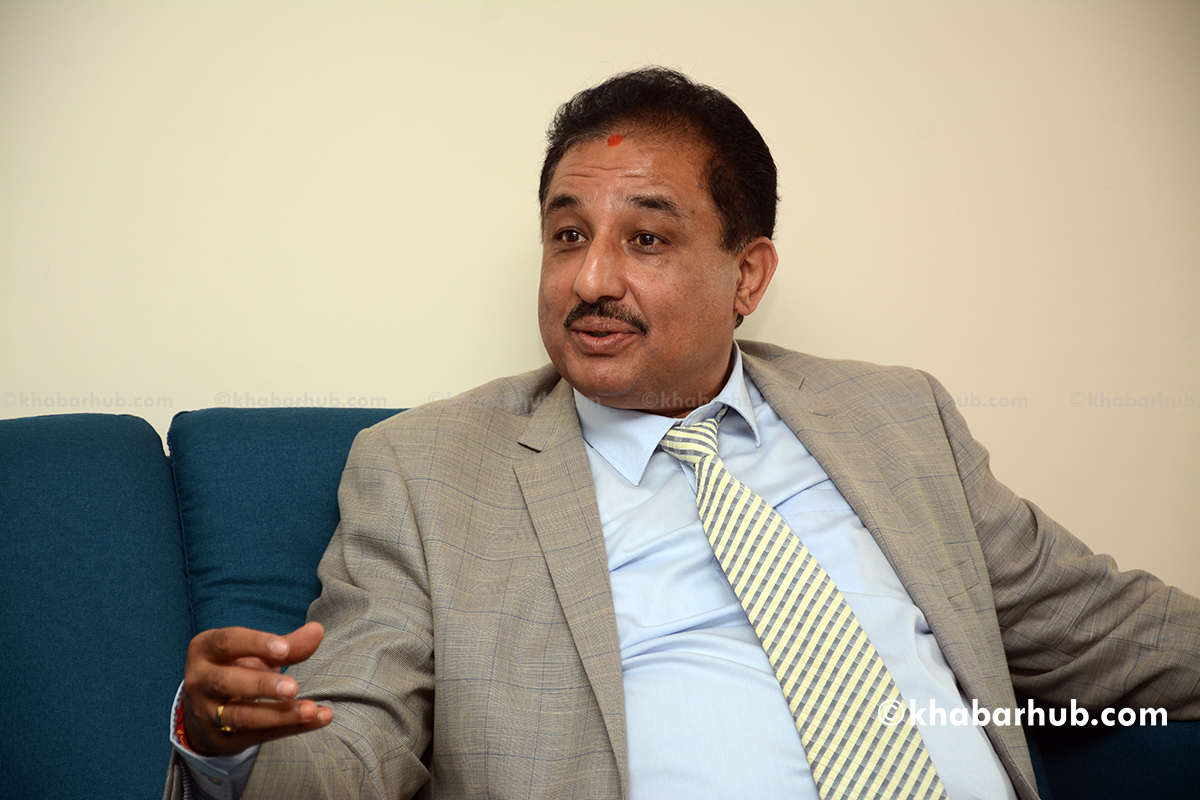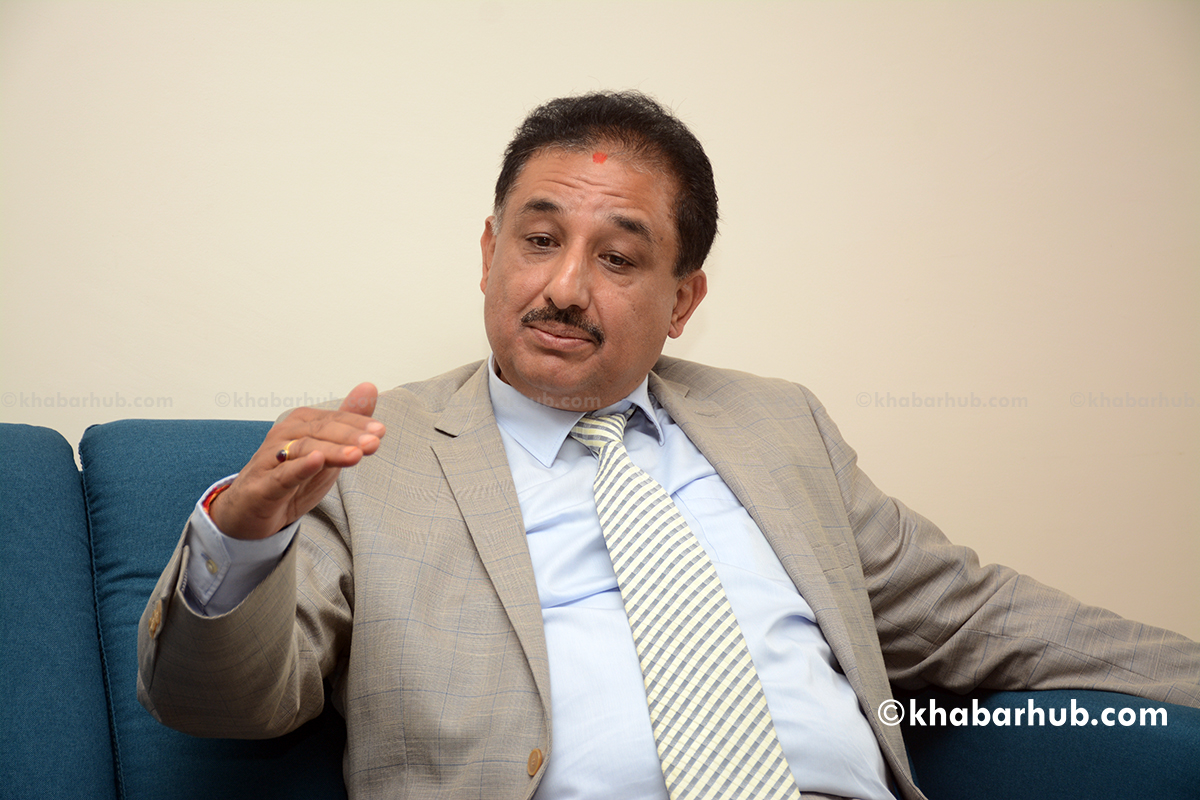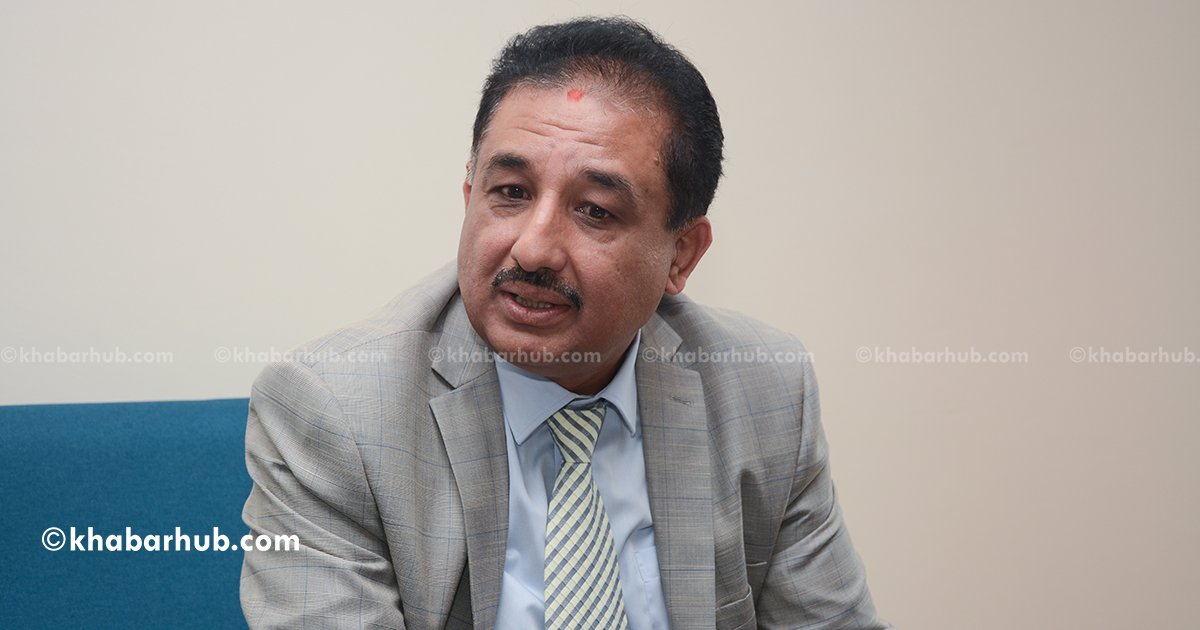Financial literacy is one of the most discussed issues in financial these days. NRB data reveal that still, about 37% of people are still out of banking access. In this scenario, many banks are working to improve their financial strength and enhance their access to more public.
Kumari Bank is trying to lead the campaign with 116 branches and the trust of more than 500,000 account holders. The bank has 107 ATM booths including the one at Everest Base Camp.
In collaboration with larger banks working in foreign markets, the bank has been providing quality and trustworthy service even outside the country. In addition to the most popular destinations like Malaysia and Qatar, the bank has expanded its service to most of the countries Nepalis have reached in pursuit of education and employment in Europe.
Khabarhub had talked to Rajib Giri, the CEO of Kumari Bank that claims to be the pioneer of e-banking in Nepal to find out more about the banks’ attempts for its service expansion, the role it has played to act as a partner in the economic prosperity of the nation and the bank’s new strategy. Here are the excerpts:
How is the banking status of Nepal? How is Kumari Bank contributing to it?
Many banks are opening every year in Nepal. 64% of Nepalis have got their access to banking. The banking trend is at rise. Kumari Bank is also working to enhance the banking access of the people. Considering the global trend, Nepali people’s interest and the international quality in banking, as per the customer’s feedback and expert advice, Kumari Bank has been providing the advanced facilities at its best.
Kumari Bank is the pioneer of e-banking in with technology Nepal. As recognition for its deed, the bank has got the international awards like ‘M. Williams Award’ and Manthan Puraskar.
Established in 2001, the bank has been providing technology-friendly modern banking services. The bank has been supporting the financial awareness program in collaboration with the National Banking Institute (NBI).
In addition, to enhance public awareness, the bank has been facilitating various programs promoting sustainable development and the economic prosperity of the locals. It has been conducting a financial awareness program on a regular basis.

How have the private sector banks taken the monetary policy the government has put forward now? What is your standpoint on bank merger policy?
Private sector banks are concerned about the monetary policy the government has adopted. Everyone has to abide by the law. I hope the regulatory body, Nepal Rastra Bank is also aware of it. After the enforcement of the monetary policy, some banks have already gone for a merger, others might have planned on it.
The government is also striving to fuse banking services and the sector as a part of the national economy. This is good. It has taken to the merger policy so that the banking capital can be increased. This policy is to expand banking service to remote rural areas and ensure the security of public investment in it. This can be vital in enhancing the economic aspect of the community.
What role have the banks been playing in economic growth? How are they stimulating the national economy?
The banks have been regarding the governments’ agenda like the one for economic prosperity as the fundamental agenda. Banking and financial institution is also a vital aspect of the national economy. Previously, people used to rush here and there in search of banking services; however, now the banks are reaching the people to enhance their banking market. The banking service is expanded to the doors of the people. Thus banks have been contributing a lot to national economic development.
The banks can contribute a lot in economic development. When bank mobilizes the financial resources, the economy can make a remarkable leap.
What’s the status of Kumari Bank’s service extension in the national and international markets?
Kumari Bank has been serving more than 500,000 account holders. We have been providing service to our customers through 116 different branches including the one in Chunmundri Rural Municipality of Gorkha. We have 107 ATM booths including the one in Everest Base Camp.
In collaboration with bigger banks working in the banking sector abroad, we have been providing our quality service to our valued customers. In addition to Europe, the countries like Qatar, Malaysia and other places where Nepalis have been striving for education, employment and professional career, the bank has been offering a quality service.
There are many instances of hackers successfully manipulating the banking system and rob the deposits? How do you take this security threat?
The banks develop and use very sensitive and advanced technology to address security threats. However, the hackers manage to steal over it quite frequently. Yet, if we look at the latest incidents, the bank’s new technology has been very helpful in curbing such activities.
Though the minor incidents, sometimes the customers may feel insecure. However, the customers need not panic as all their amount is insured. We put the security of the deposit at a top priority. Our customers are our priority.

They say banks are profit-oriented. They value the gross more than anything, they do not pay attention to investment. Has Kumari Bank been able to keep itself aloof?
Obviously, one of the objectives of the banks is to earn a profit, the profit based on quality service. The more profit they earn, the higher the investment in better quality and modern services to the public.
The banks invest a certain portion of their profit in various sectors. There are some obligatory laws demanding the investment of the profit the banks make.
The banks invest 25% of their profit in various sectors. They are investing in the sector of agriculture, tourism, industry and other sectors. Banks are exploring the area of investment; they are increasing their investment as well.
Provided the government makes a conducive environment for investment, the banks are ready to widen the span of their investment. The banks have made an immense contribution in the investment sector.
How does the liquidity in banking sectors impact the economy? The banks have failed to be the partners of development; on the other hand, the Ministry of Finance has turned strict in case of the interest. Till now there has been no official remarks from the banking sector. Why?
Surely, the liquidity in the banking sector affects the economy, however, I do not think that there will be liquidity crises in the country like ours. Besides, the banks are enhancing their capacity to cope with the liquidity crisis. Now while talking about interest, we have to be clear that the interest the banks are levying is as per the standards set by the government.
We have been providing interest facilities as per the provisions in the Banks and Financial Institution Act, 2017. We have been keeping our eyes on the customers’ demands and expectations. There is no such problem.
Nepal Rastra Bank has made the concessional loan mandatory. However, the banks are grumbling against it. The banks are not abiding the regulations to adopt the Social Security Fund provisions. Why is it so?
The banks are issuing a concessional loan. The government has made it almost mandatory to issue the concessional loans in 9 sectors. Accordingly, the banks are issuing the loan verifying application details. Once the bank is established, it has to be governed by some of its own regulatory provisions as well.
That may have created some gaps. The government as a guardian should be thoughtful about the problems of the bank as well. The banks should not be subject to dual tax. There are some legal complications to be considered before accepting the provisions of the social security fund. Provided the government addresses them, we have no objections to the overall policy. The government should not impose a dual tax on the banks.









Comment